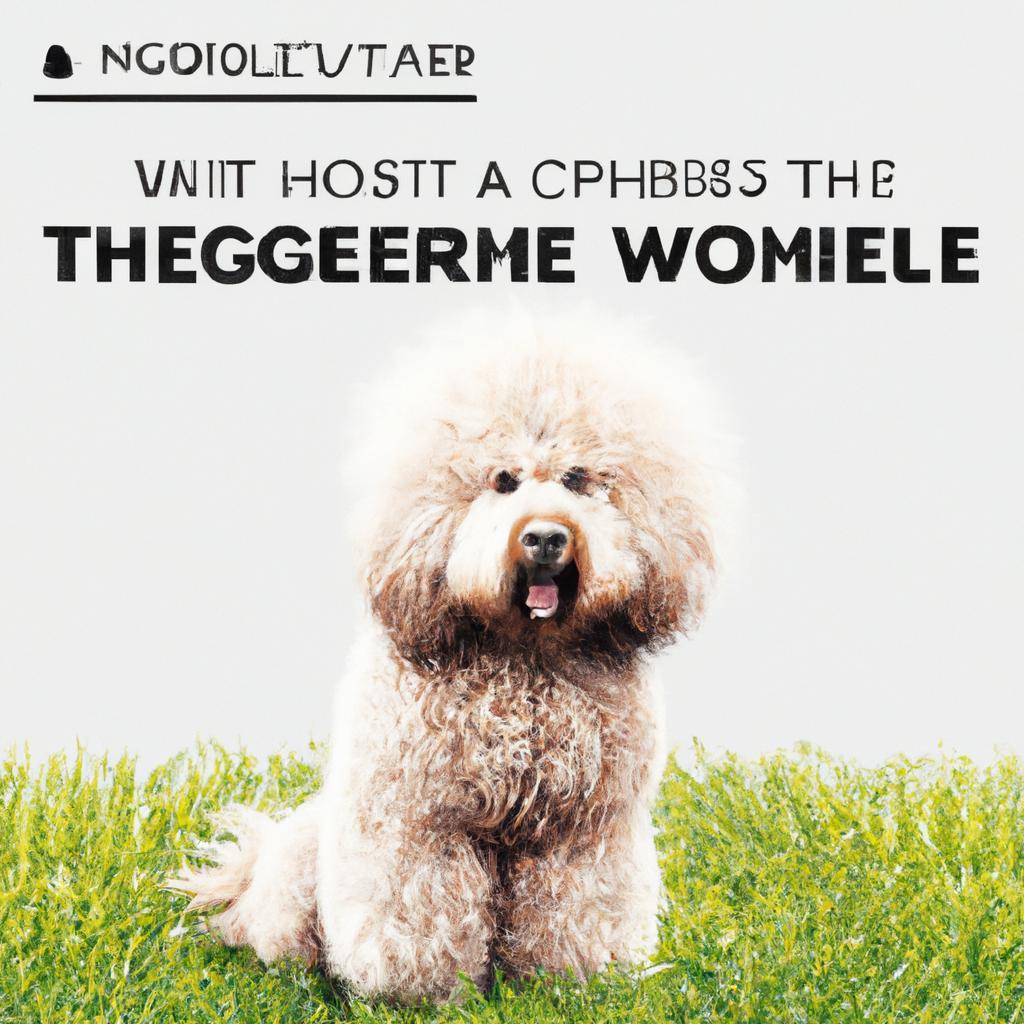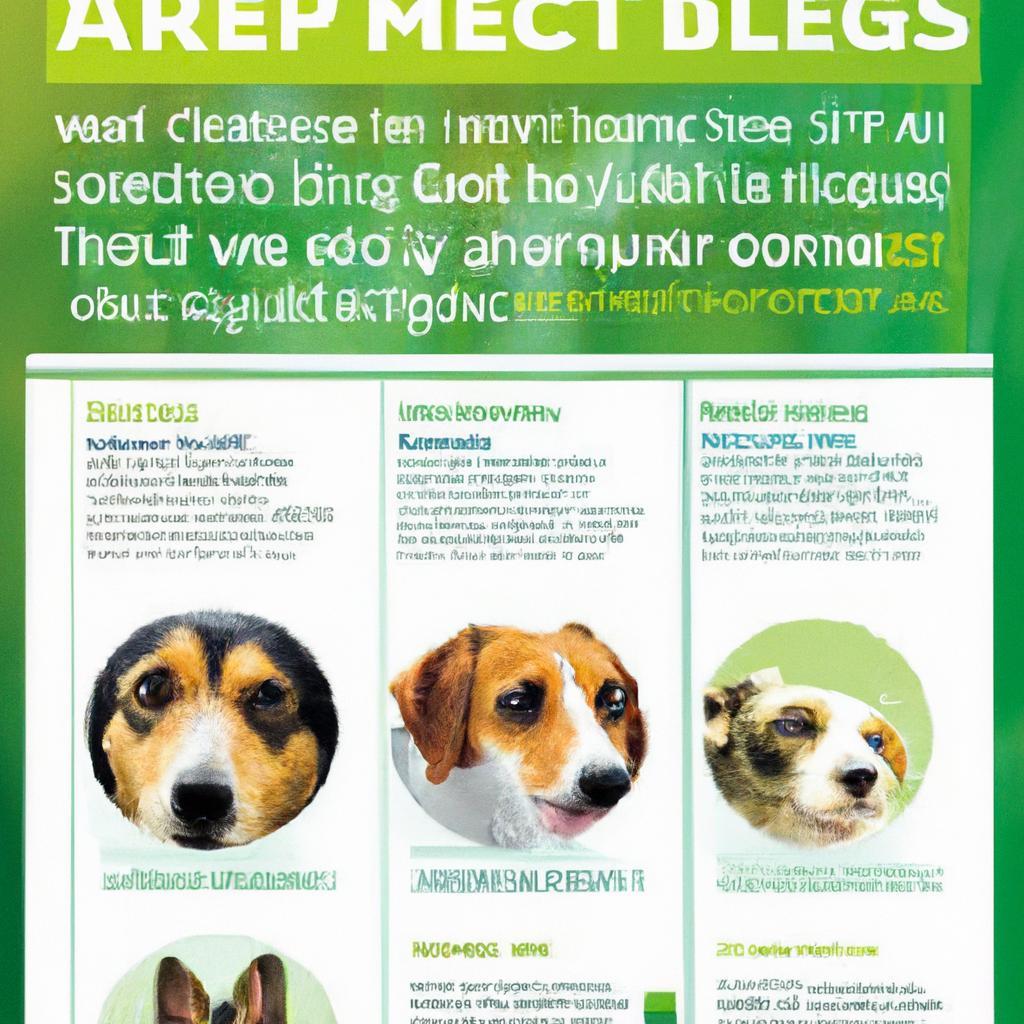Imagine a family longing for a furry companion but held back by allergies. Enter the Poodle, the most hypoallergenic dog, renowned for its curly coat that traps dander and hair, preventing it from spreading throughout the home. With intelligence and a playful spirit, Poodles come in various sizes—standard, miniature, and toy—making them perfect for any lifestyle. By choosing a Poodle, families can enjoy the joy of a pet without the sneezing and sniffles. Embrace the love of a dog without compromise!
Contents
- Understanding Hypoallergenic Dogs and Their Unique Traits
- Top Breeds for Allergy Sufferers: A Comprehensive Overview
- Care and Maintenance Tips for Hypoallergenic Dog Owners
- Making the Right Choice: Factors to Consider Before Adopting a Hypoallergenic Dog
- Q&A
Understanding Hypoallergenic Dogs and Their Unique Traits
When it comes to choosing a pet, many individuals and families face the challenge of allergies. Hypoallergenic dogs are often seen as the solution for those who love dogs but suffer from allergies. These breeds are known for producing fewer allergens, making them more suitable for allergy sufferers. However, it’s essential to understand that no dog is completely hypoallergenic; rather, these breeds tend to produce less dander, saliva, and urine, which are the primary sources of allergens.
One of the most notable traits of hypoallergenic dogs is their coat type. Many of these breeds have hair instead of fur, which means they shed less and trap dander more effectively. This unique coat requires regular grooming, which not only keeps the dog looking its best but also helps minimize allergens in the home. Some popular hypoallergenic breeds include:
- Poodle – Available in standard, miniature, and toy sizes, Poodles are known for their curly, low-shedding coats.
- Bichon Frise – With their soft, curly fur, Bichon Frises are playful and affectionate companions.
- Portuguese Water Dog – This breed is energetic and intelligent, sporting a dense, curly coat that helps reduce allergens.
- Shih Tzu – Known for their long, flowing hair, Shih Tzus require regular grooming but are great for allergy sufferers.
Another unique trait of hypoallergenic dogs is their temperament. Many of these breeds are known for being friendly, loyal, and adaptable, making them excellent family pets. They often thrive in various living situations, whether in a bustling household or a quieter environment. Their sociable nature means they enjoy being around people, which can help foster a strong bond between the dog and its owner, enhancing the overall pet experience.
it’s important to note that individual reactions to dog allergens can vary significantly. While one person may find relief with a specific hypoallergenic breed, another may still experience allergic reactions. Therefore, it’s advisable to spend time with a breed before making a commitment. This hands-on approach allows potential owners to gauge their reactions and ensure they can enjoy a harmonious relationship with their new furry friend.
Top Breeds for Allergy Sufferers: A Comprehensive Overview
For those who suffer from allergies, finding the right canine companion can be a daunting task. Fortunately, certain dog breeds are known for producing fewer allergens, making them more suitable for allergy sufferers. These breeds typically have hair instead of fur, which helps to trap dander and reduce the spread of allergens in the home. If you’re considering adding a furry friend to your family, here are some breeds that stand out for their hypoallergenic qualities:
- Poodle: Available in standard, miniature, and toy sizes, Poodles have a curly coat that minimizes shedding and dander. Their intelligence and trainability make them a popular choice for families.
- Bichon Frise: With their soft, curly coats, Bichon Frises are not only adorable but also produce less dander. Their playful and affectionate nature makes them great companions.
- Portuguese Water Dog: Known for their energetic and friendly demeanor, these dogs have a dense, curly coat that helps contain allergens. They are also highly trainable and love to be active.
- Shih Tzu: This breed boasts a long, flowing coat that requires regular grooming but sheds minimally. Shih Tzus are known for their affectionate personalities and make excellent lap dogs.
In addition to their hypoallergenic traits, many of these breeds offer unique characteristics that can enhance your lifestyle. For instance, Poodles are not only low-shedding but also excel in various dog sports, making them perfect for active owners. Similarly, the Portuguese Water Dog is known for its love of water and can be a great companion for outdoor enthusiasts.
When considering a hypoallergenic breed, it’s essential to remember that individual reactions can vary. Spending time with a breed before making a commitment can help gauge your sensitivity to them. Regular grooming and cleaning can also play a significant role in minimizing allergens in your home, regardless of the breed you choose.
Ultimately, selecting a dog that aligns with your lifestyle while being mindful of allergy concerns can lead to a fulfilling companionship. By choosing one of these hypoallergenic breeds, you can enjoy the joys of dog ownership without compromising your health. With the right care and attention, these breeds can thrive in your home, providing love and loyalty for years to come.
Care and Maintenance Tips for Hypoallergenic Dog Owners
Owning a hypoallergenic dog can significantly enhance the quality of life for those with allergies, but it also comes with specific care and maintenance requirements. To ensure your furry friend remains healthy and your home stays allergen-free, consider implementing a consistent grooming routine. Regular brushing helps to minimize shedding and dander, which are common triggers for allergies. Aim for at least two to three grooming sessions per week, using tools designed for your dog’s coat type.
In addition to grooming, maintaining a clean living environment is crucial. Vacuuming your home frequently can help eliminate pet hair and dander from carpets and upholstery. Utilize a vacuum cleaner equipped with a HEPA filter to trap allergens effectively. Don’t forget to wash your dog’s bedding and toys regularly, as these can also harbor allergens. Establish a cleaning schedule that includes weekly washes to keep your space fresh and comfortable.
Diet plays a significant role in your dog’s overall health and can impact their coat quality. Opt for high-quality, hypoallergenic dog food that is free from common allergens. Consult with your veterinarian to determine the best dietary plan tailored to your dog’s specific needs. A balanced diet rich in essential fatty acids can promote a healthy coat, reducing the likelihood of excessive shedding and dander production.
Lastly, consider the air quality in your home. Investing in an air purifier with a HEPA filter can significantly reduce airborne allergens, creating a healthier environment for both you and your dog. Additionally, keeping windows open for ventilation and using hypoallergenic cleaning products can further minimize allergens. By taking these proactive steps, you can enjoy the companionship of your hypoallergenic dog while maintaining a comfortable and allergy-friendly home.
Making the Right Choice: Factors to Consider Before Adopting a Hypoallergenic Dog
When considering the adoption of a hypoallergenic dog, it’s essential to evaluate your lifestyle and living situation. **Activity level** is a crucial factor; some breeds require more exercise and mental stimulation than others. If you lead a busy life or have limited space, opting for a breed that thrives in a less active environment may be beneficial. Additionally, consider your **family dynamics**. If you have young children or other pets, ensure the breed you choose is known for being friendly and adaptable.
Another important aspect to think about is **grooming requirements**. Hypoallergenic dogs often have coats that require regular maintenance to minimize shedding and dander. Research the grooming needs of different breeds, as some may need professional grooming while others can be maintained at home. Understanding the time and financial commitment involved in grooming will help you make a more informed decision.
Health considerations should also play a significant role in your choice. Some hypoallergenic breeds are predisposed to certain health issues, which can lead to unexpected veterinary costs and emotional stress. Look into the **health history** of the breed and consult with breeders or veterinarians to ensure you’re aware of any potential concerns. A breed with a robust health record can provide peace of mind and a happier companionship.
consider your **allergy sensitivities**. While no dog is completely hypoallergenic, some breeds produce fewer allergens than others. Spend time with different breeds to see how your allergies react before making a commitment. This hands-on approach can help you gauge your comfort level and ensure that your new furry friend will fit seamlessly into your life.
Q&A
-
What does hypoallergenic mean in relation to dogs?
Hypoallergenic dogs are breeds that are less likely to trigger allergic reactions in sensitive individuals. This is often due to lower levels of shedding and dander, which are common allergens found in pet hair and skin.
-
Which dog breeds are considered the most hypoallergenic?
Some of the most hypoallergenic dog breeds include:
- Poodle
- Bichon Frise
- Portuguese Water Dog
- Shih Tzu
- Yorkshire Terrier
These breeds are known for their minimal shedding and lower dander production.
-
Can hypoallergenic dogs still cause allergies?
While hypoallergenic dogs are less likely to cause allergic reactions, they are not completely allergy-proof. Individual reactions can vary, and some people may still experience allergies due to proteins found in saliva, urine, or skin.
-
What can I do to reduce allergies if I have a hypoallergenic dog?
To minimize allergic reactions, consider the following:
- Regular grooming: Frequent brushing and bathing can help reduce dander.
- Clean your home: Regular vacuuming and dusting can help remove allergens.
- Air filtration: Using HEPA filters can improve air quality and reduce allergens.
Implementing these practices can enhance your experience with a hypoallergenic dog.
choosing the right hypoallergenic dog can significantly enhance your quality of life, especially for allergy sufferers. By selecting a breed that suits your lifestyle and needs, you can enjoy the companionship of a furry friend without the sneezes.




